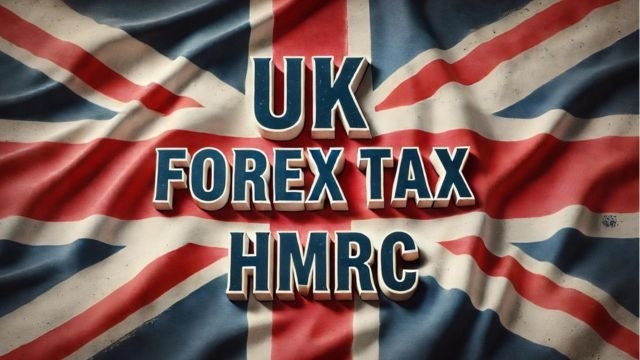Do You Pay Tax on Forex Trading UK: Essential Guide
Navigating the world of Forex trading can be exciting, yet it often raises some pressing questions—especially about taxes. If you’re trading Forex in the UK, you might be wondering whether you need to pay tax on your earnings and how to handle any potential obligations.
This question is crucial for safeguarding your financial future and avoiding any unexpected surprises from the taxman. We’ll break down the complexities of tax on Forex trading in the UK, so you can trade with confidence and clarity. Understanding your tax responsibilities can empower you to make smarter financial decisions.
You’ll discover key insights that can help you plan your trades more effectively and ensure you remain compliant with HMRC regulations. Stick with us to unravel these intricacies and keep your trading journey smooth and stress-free.

Credit: cangafltd.com
Forex Trading Tax Basics
Forex trading can fall into different tax categories. Some traders are seen as speculative. Their gains may not be taxable. Other traders may be viewed as investors. They pay tax on their profits. It’s key to know your category. This helps avoid tax issues. Most traders are investors. They pay Capital Gains Tax. Losses can reduce tax. Always keep records. This ensures you report accurately. Knowing tax rules is important. This keeps trading smooth.
Some traders treat trading as a business. They trade full-time. Their profits are taxed differently. Income Tax applies here. Business expenses can be deducted. This reduces taxable income. Traders must show they run a business. Regular trading and planning are needed. Business tax rules are stricter. Keeping clear records helps. It ensures correct tax filing. Trading as a business has benefits. But it also has more tax duties.
Types Of Forex Traders
Casual traders buy and sell currencies for fun. They do not trade every day. They use their extra time to trade. These traders often have another job. They see trading as a hobby. Their goal is to make some extra money. Casual traders may not need to pay tax on every trade. But they should check the UK tax rules. Keeping track of profits is important. It helps them when tax time comes.
Professional traders trade currencies as their main job. They spend a lot of time in the market. Their goal is to make a big profit. They have more experience and skills. They must pay tax on their profits. In the UK, the tax rules are strict for them. They need to keep detailed records. Understanding tax rules is important for them. This helps them avoid problems with taxes.
Hmrc Regulations
Forex trading in the UK falls under HMRC rules. Traders must know if they are speculating or investing. Speculative trades might be exempt from taxes. But, consistent profits could be taxed.
Income tax and capital gains tax are the two main types. Your tax rate can depend on your income. It’s important to check the latest rules.
Keeping detailed records is crucial for forex traders. These records include profits, losses, and trades. Traders should record all transactions clearly. This helps when you report to HMRC.
Records should be kept for at least five years. Good records can prevent future issues. Always update your records after each trade.
Tax Treatment Of Forex Profits
Forex trading can lead to capital gains. These gains might be taxed. The rate depends on your income level. Selling currencies at a profit counts as capital gains. The tax rate can be between 10% and 20%. Keeping records is important. It helps in calculating the right tax amount.
Income from forex trading may be considered income tax. It is taxed based on your total earnings. This includes wages and other profits. The tax rate changes with income. Higher earnings mean higher tax. Self-employed traders need to report earnings. They must use the correct tax form.
Allowable Deductions
Traders can claim expenses to reduce their tax bills. These include broker fees, software subscriptions, and internet costs. Keeping records of all expenses is important. Make sure to keep receipts and bills. This helps when filling out tax forms. Most costs related to trading can be claimed. But, only if they are necessary for trading.
Losses in forex trading can be used to reduce tax. If you lose money, you can offset it against profits. This means less tax to pay. Losses can be carried forward to future years. This helps if you make a profit later. Always report losses to the tax office. It’s important for accurate records.

Credit: www.dailyforex.com
Tax Reporting Process
Forex traders in the UK must report earnings. Deadlines for filing tax returns are crucial. Missing them can lead to penalties. Documents needed include trade records. Keep receipts and statements safe. Organize your records for easy access. Accurate records help avoid errors.
The UK tax year runs from April 6 to April 5. Traders must file returns by January 31. Late submissions face fines. It’s important to mark these dates. Timely filing prevents stress. Planning ahead is wise.
Forex trading requires detailed documentation. Store trade receipts carefully. Keep bank statements organized. Profit and loss statements are essential. Maintain transaction records regularly. This helps in smooth tax filing. Documentation simplifies the process. Always double-check for accuracy.
Common Mistakes To Avoid
Misclassifying Income can lead to tax problems. Some traders think forex gains are capital gains. But they might be seen as regular income. Wrong classification may cause higher taxes. Check the tax rules carefully. This helps in correct income classification.
Neglecting Record-Keeping is risky. Many traders forget to track their trades. They lose records of profits and losses. Keeping records is important for tax filings. Good records help to avoid mistakes. Use software or apps to track trades. It makes record-keeping simple and easy.

Credit: cangafltd.com
Seeking Professional Advice
Forex trading can be tricky with taxes. Sometimes, rules are unclear. A tax expert can help you understand. Experts know the latest rules. They help you pay the right taxes. Mistakes can cost money. A professional avoids these.
Big profits need checking. So do complex trades. If unsure about any rule, ask an expert. New traders often need help. Experts save time and stress. They can guide you in difficult situations.
Experts give clear advice. They help plan your taxes. This can save money. They keep you updated with rule changes. Tax experts work fast. They make sure all forms are correct. Their help can prevent penalties. Many traders find experts very helpful.
Frequently Asked Questions
Is Forex Trading Tax-free In The Uk?
Forex trading in the UK is not tax-free. Traders may be liable for Capital Gains Tax or Income Tax. It depends on whether you are classified as a speculative or professional trader. It’s crucial to determine your tax status and consult a tax advisor for accurate guidance.
How Is Forex Trading Taxed In The Uk?
Forex trading is taxed based on your trading status. Casual traders may pay Capital Gains Tax. Professional traders could be subject to Income Tax. The classification depends on factors such as trading frequency and intention. Consulting a tax professional can help clarify your specific tax obligations.
Do Part-time Forex Traders Pay Tax?
Yes, part-time forex traders may need to pay tax. If you trade occasionally, you might pay Capital Gains Tax. It’s important to keep accurate records of your trades. Consulting with a tax advisor can provide clarity on your tax responsibilities and ensure compliance with HMRC regulations.
What Tax Forms Are Required For Forex Trading?
For forex trading, you might need to complete a self-assessment tax return. You must report your gains or losses accurately. Keeping detailed records of all trades is essential. Seek advice from a tax professional to ensure proper filing and compliance with HMRC requirements.
Conclusion
Forex trading taxes in the UK depend on your trading type. Spread betting is tax-free, but CFD trading might not be. Profits from forex can be taxable if it’s your main income. Always keep detailed records of your trades. Consult a tax professional for personalized advice.
This helps you stay compliant and avoid surprises. Understanding tax obligations is crucial for forex traders. It ensures smooth trading and financial peace. Stay informed and trade wisely. This knowledge can help you make better financial decisions. Happy trading, and keep your tax matters in check!
